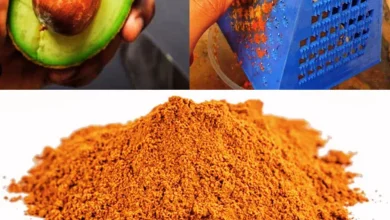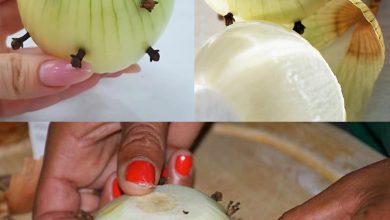Solid ideas

A stuffy nose, medically known as nasal congestion, is a common and often bothersome ailment. It can significantly impact your quality of life, making breathing difficult and disrupting sleep. While it frequently accompanies common illnesses like colds, allergies, or sinus infections, sometimes nasal congestion lingers, defying over-the-counter remedies like Dayquil. This persistent stuffiness can be particularly frustrating, leaving you searching for effective solutions. This expanded article explores the various causes of prolonged nasal congestion, delves into why over-the-counter medications might fall short, and provides a comprehensive overview of effective home remedies that many find beneficial.
Understanding the Complex Causes of a Stuffy Nose
Nasal congestion arises when the tissues lining the nasal passages become swollen due to inflamed blood vessels. This inflammation can be triggered by a multitude of factors. Viral infections, such as the ubiquitous common cold, are a frequent culprit. Allergies to common environmental substances like pollen, dust mites, pet dander, or mold can also lead to significant nasal congestion. Sinus infections, characterized by inflammation of the sinuses, often present with a stuffy nose as a primary symptom. Furthermore, environmental irritants, including smoke (both firsthand and secondhand), strong odors, and even changes in weather, can contribute to nasal congestion. In some cases, structural issues within the nose, such as a deviated septum (a displacement of the wall dividing the nostrils), can predispose individuals to chronic congestion. Accurately identifying the underlying cause of your stuffy nose is paramount in determining the most appropriate and effective treatment strategy.
Why Over-the-Counter Medications May Not Always Provide Lasting Relief
Over-the-counter (OTC) medications like Dayquil are often the first line of defense against cold and flu symptoms, including nasal congestion. These medications typically target the temporary relief of symptoms, such as reducing inflammation and drying up nasal secretions. However, they may not address the root cause of the congestion, especially if it stems from allergies, chronic sinusitis, or structural abnormalities. Furthermore, some decongestants, particularly nasal sprays containing oxymetazoline or phenylephrine, can lead to a phenomenon known as “rebound congestion” if used for more than a few days. This occurs when the nasal passages become even more swollen as the medication wears off, creating a cycle of dependence. Understanding the limitations of OTC medications and their potential side effects is crucial in seeking more targeted and sustainable solutions for persistent nasal congestion.
Exploring a Range of Effective Home Remedies for a Stuffy Nose
Home remedies offer a natural and often effective approach to alleviating nasal congestion. These remedies typically focus on reducing inflammation, clearing nasal passages of mucus, and providing comfort without the potential side effects associated with some medications. From the classic steam inhalation to the use of essential oils and dietary modifications, there are numerous options to explore, allowing individuals to choose based on their personal preferences, available resources, and the suspected cause of their congestion.
The Time-Honored Benefits of Steam Inhalation
Steam inhalation is a simple yet powerful remedy for a stuffy nose. Inhaling warm, moist air can help loosen thick mucus, making it easier to expel, and reduce inflammation within the nasal passages. This method can be easily implemented at home. Simply boil water, carefully pour it into a bowl, and inhale the steam while covering your head with a towel to trap the moisture. Adding a few drops of essential oils, such as eucalyptus or peppermint, to the water can further enhance the decongestant effect.
Utilizing Saline Nasal Sprays for Gentle Relief
Saline nasal sprays are a gentle and effective way to moisturize dry nasal passages and clear out accumulated mucus. These sprays work by thinning the mucus, facilitating its expulsion, and reducing inflammation. Saline sprays are generally safe for frequent use and can be particularly beneficial for individuals with allergies or those experiencing dry nasal passages due to environmental factors like dry winter air.
The Potential of Essential Oils in Clearing Nasal Congestion
Certain essential oils, including eucalyptus, peppermint, and tea tree oil, possess natural decongestant and anti-inflammatory properties. These oils can be utilized in various ways. Adding a few drops to a diffuser can disperse the aroma throughout a room, providing ongoing relief. Alternatively, they can be mixed with a carrier oil, such as coconut or almond oil, for topical application to the chest or temples. Essential oils can also be added to the water used for steam inhalation. These oils can contribute to opening up nasal passages and provide a soothing and refreshing sensation. It is important to note that essential oils should always be used with caution, and it is recommended to consult with a healthcare professional or qualified aromatherapist before using them, especially if you are pregnant, breastfeeding, or have any underlying health conditions.
The Importance of Hydration in Alleviating Nasal Blockage
Maintaining adequate hydration is crucial when dealing with a stuffy nose. Drinking plenty of fluids helps to thin mucus, making it easier to clear from the nasal passages. Warm liquids, such as herbal teas, clear broths, or warm water with lemon and honey, can be particularly soothing and effective in providing relief.
The Impact of Humidifiers on Nasal Health and Congestion
Using a humidifier in your home, especially during dry winter months, can add much-needed moisture to the air. This helps prevent the nasal passages from becoming excessively dry and irritated, which can exacerbate congestion. A humidifier can help maintain optimal humidity levels, making breathing easier and reducing the likelihood of nasal congestion.
Dietary Considerations for Reducing Nasal Congestion and Inflammation
Certain dietary choices can influence nasal congestion. Spicy foods, for example, can sometimes help clear nasal passages temporarily by thinning mucus. Conversely, some individuals find that dairy products may increase mucus production. Maintaining a balanced diet rich in fruits, vegetables, and omega-3 fatty acids, found in foods like salmon and flaxseed, can support overall immune health and potentially reduce inflammation.
The Soothing Role of Herbal Teas in Relieving a Stuffy Nose
Herbal teas, such as ginger, chamomile, and peppermint tea, can offer relief from nasal congestion. These teas often possess natural anti-inflammatory and soothing properties that can help reduce swelling in the nasal passages. Drinking warm herbal tea also provides comfort and hydration, which can aid in the recovery process.
When to Seek Professional Medical Advice for Persistent Nasal Symptoms
While home remedies can be highly effective for many cases of nasal congestion, it is essential to seek professional medical advice if your symptoms persist for more than a week, are accompanied by a high fever, severe headache, facial pain, or thick, discolored nasal discharge. These could be indicative of a more serious condition, such as a sinus infection or other underlying health issue, that requires prompt medical attention and treatment. “If symptoms persist, consult a doctor.”
Finding the Right Remedy for Your Individual Needs
Dealing with a persistent stuffy nose can be a frustrating experience. However, by exploring a variety of home remedies and understanding the potential underlying causes of your congestion, you can often find effective relief and comfort. It is important to identify what works best for your individual needs and circumstances. Whether it is steam inhalation, the use of essential oils, dietary adjustments, or a combination of approaches, these natural remedies can complement traditional medical treatments and help you breathe easier. Remember, if your symptoms persist or worsen, always consult with a qualified healthcare professional for proper diagnosis and treatment.




